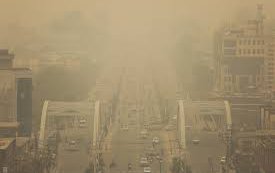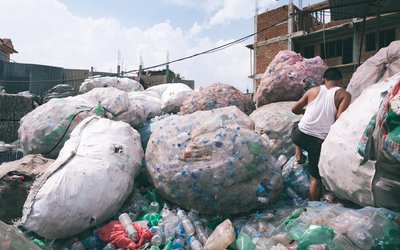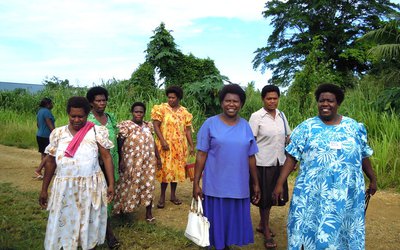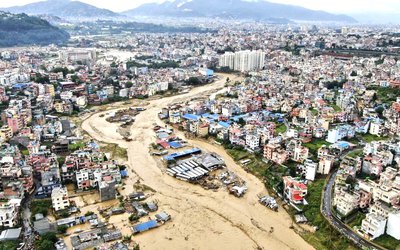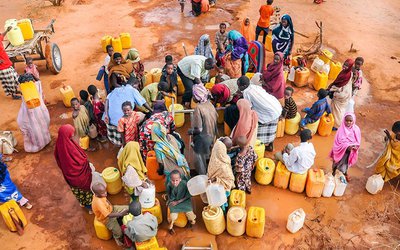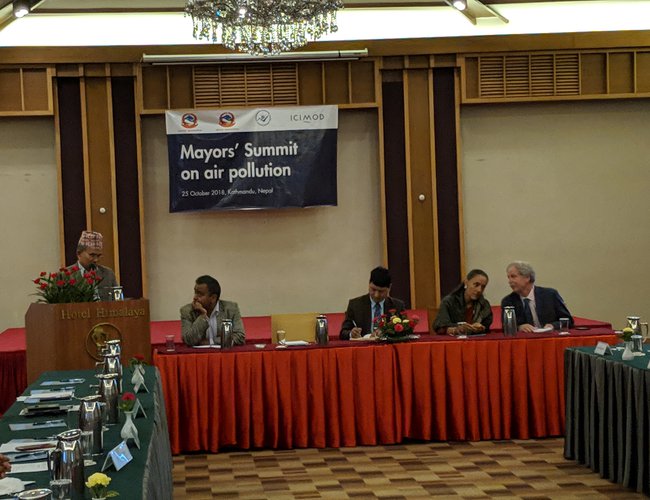
As Kathmandu’s air quality is deteriorating, with contaminations of harmful particles affecting the life of people, eighteen mayors and deputy mayors of the valley have shown their concern and agreed to take necessary steps to improve the present state of air.
For over six million citizens of Kathmandu Valley, this is good news. However, it is yet unclear how the municipal mayors will tackle the problem. Along with mayors, government officials, international experts and national experts have expressed solidarity to fulfill the commitment shown by the mayors.
Air pollution is a daily struggle for the citizens of the Kathmandu Valley and the authorities are under intense pressure to address this complex problem. “We strongly believe that there is hope that the problem can be significantly reduced, but this will require a coordinated action across the valley that is based on scientific evidence,” said Bhushan Tuladhar, chairperson of Clean Energy Nepal.
Organized jointly by Clean Energy Nepal (CEN) and the International Centre for Integrated Mountain Development (ICIMOD), in collaboration with Kathmandu Metropolitan City and Lalitpur Metropolitan City, the first Mayors’ Summit on Air Pollution expressed their solidarity to take steps.
During the two-hour event, there were short experts’ briefings on the current scientific understanding of air pollution, on the solutions that municipalities can implement, and on the regulatory framework within which they can work.
Ambassador of Mexico Ms. Melba Pria shared her experience about Mexico City’s effort. Mexico City is geographically very similar to the Kathmandu Valley – a bowl shaped valley with multiple municipalities. Twenty years ago it had the worst air quality in the world, but has since made remarkable improvements.
She shared how they have achieved success in making it as livable city from the worst city of the world.
Mayor of Lalitpur Metropolitan City Chiribabu Maharjan said that he is willing to work together for clean air. Mayor of Kathmandu Metropolitan City Bidhya Sunder Shakya also said that he wants to clean the air of Kathmandu.
Speaking at the program Dr David Molden, Director General of the International Centre for Mountain Development, highlighted the need of working together to fight air pollution.
Dr. Aranico Pandey, Atmospheric Scientist and Regional Program Manager at ICIMOD, delivered a scientific presentation in the program explaining the state of quality of air in Kathmandu valley and ways to improve it.
Bhushan Tuladhar, chairperson of CEN, said that the air pollution has now become the biggest challenges in the key urban areas of Nepal, mainly in view of sources such as transport, area sources like open waste burning and stationary sources like industries.
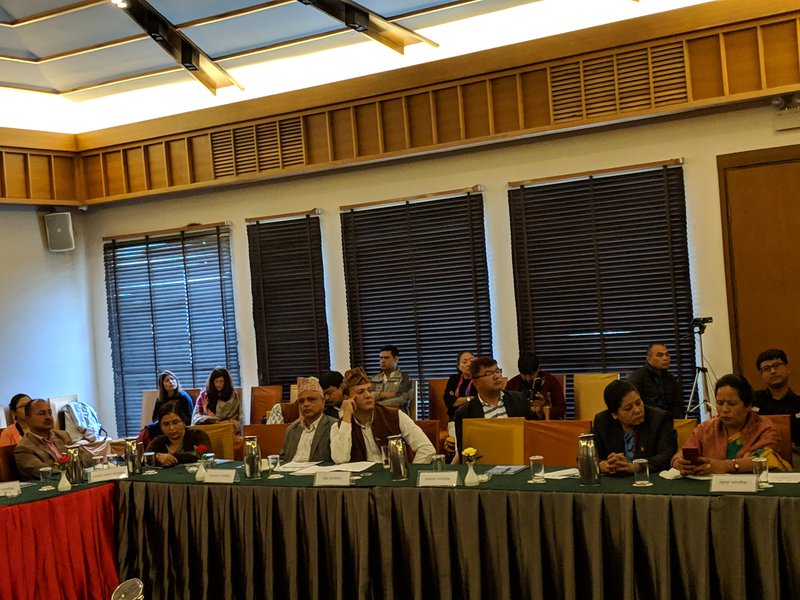
Among these, Kathmandu Valley has been suffering from the bad quality of air especially from transportation (vehicular emission) and open waste burning (CEN, 2014). Among various air pollutants, Particulate Matter is one of the pollutants that have been extensively measured in Kathmandu Valley as dust pollution is of major concern.
The global Environmental Performance Index (EPI) 2018 has also ranked the quality of air in Nepal among the lowest in the world. Time and again the media and other research institutes have been quoted “Kathmandu as 1st/3rd most polluted city in Asia or in the world. Although there are some debates on the Valley’s performance level, the truth is that the air quality of Kathmandu Valley is deteriorating with each passing day.”
To address the increasing air pollution, the Air Pollution Control Taskforce, which consisted of environmental experts and senior government officials, submitted simple and doable actions that could be performed to control the air pollution in the Valley. This plan was submitted to the National Planning Commission, and its objective was to mainstream air quality activities with the rest of the annual government plans.
Under the direction of the Good Governance Committee and Prime Minister’s initiative, the Cabinet Secretariat prepared a comprehensive work plan for minimizing air pollution in the capital city. According to the proposed plan, 23 government agencies, including ministries and departments, will strive to reduce the air pollution in the capital.
To directly mainstream the air pollution in Kathmandu City, the work plan intends to form a Strategy and Action Plan Implementation Coordination Committee and a Strategy and Action Plan Implementation Unit. As Nepal is implementing a three-tiered federal structure, newly elected government officials and newly created institutions are at the stage of devising and implementing different strategies to manage and improve Nepal’s air quality. Some of the Metropolitan Cities and the Municipalities of Kathmandu Valley have already shared their one year action plan and the policy for the air quality management.
But there is a lack of synchronized plan amongst the valley municipalities. Since the air pollution is a common challenge for all, a comprehensive and integrated Plan for Air Quality Management is needed. This can be possible only when the elected authorities sit together and discuss on a common agenda “Air Pollution Management”.
The ultimate goal of this program is to create a synergy between the municipal action plans to improve the Air Quality of Kathmandu Valley. The workshop focused on sharing how the agendas and commitments from the summit have been incorporated in the local level action plan and monitors their effectiveness in mitigating Air Pollution in Kathmandu Valley.
Those presented at the program were Lalitpur Metropolitan City, Kathmandu Metropolitan Cit, Kageshwori Manohara Municipality, Kirtipur Municipality, Gokarneshwor Municipality, Chandragiri Municipality, Tokha Municipality, Tarkeshwor Municipality and Dakshinkali Municipality.
Similarly, mayors and others from Nagarjun Municipality, Budhanilkantha Municipality, Lalitpur Metropolitan City, Godawari Municipality, Mahalaxmi Municipality Bhaktapur, Changunarayan Municipality, Bhaktapur Municipality, Madhyapur Thimi Municipality, Suryabinayak Municipality, Ministry of Forest and Environment, Department of Environment, Research Organizations representing Air Pollution focused organization were present.
- MELAMCHI WATER SUPPLY: No Interruption During Monsoon
- Jun 25, 2025
- KOREAN RETURNEES: Successful Integration
- Jun 25, 2025
- UPPER TRISHULI-1: Engaging With Local
- Jun 25, 2025
- IME GROUP: Twenty Five Years Of Journey
- Jun 24, 2025
- NEPAL’S AIR POLLUTION: A Growing Health Concern
- Jun 24, 2025
